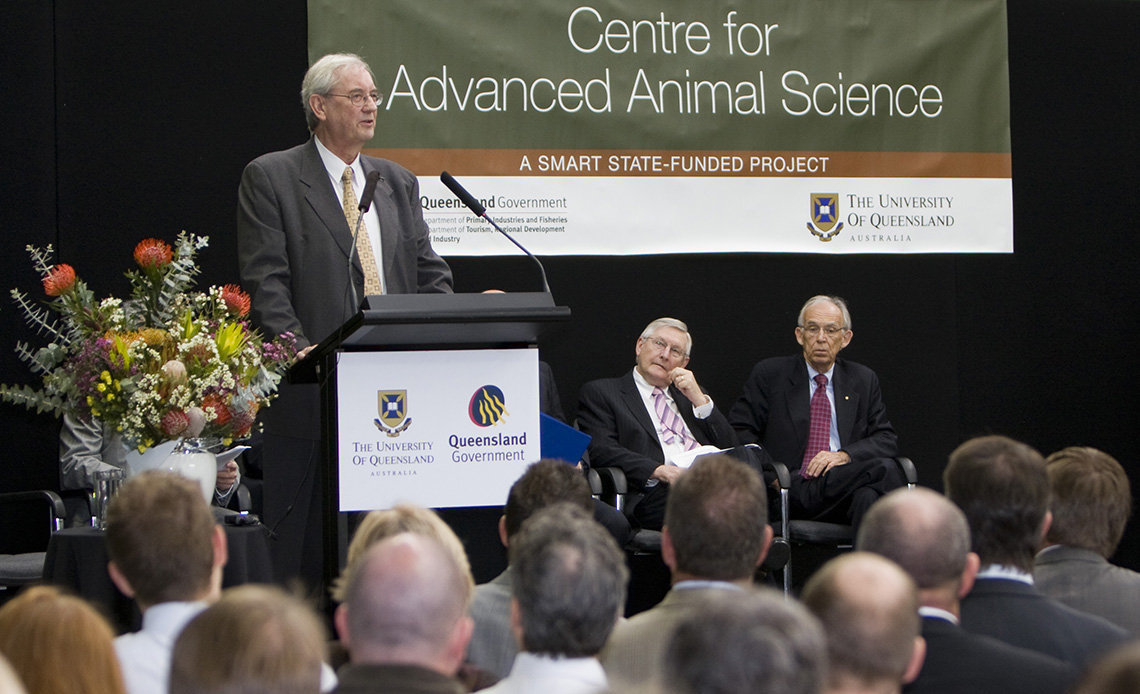About QASP
The Queensland Animal Science Precinct (QASP) is a unique world-class research facility that accommodates training, teaching, validation and commercialisation of animal research focusing on the research and development requirements of state, national and international animal industries.
QASP has the ability to undertake a diverse range of animal research including nutrition, health and disease management, vaccine development, behavioural and welfare studies, biosecurity investigational work, reproduction and food safety – all of which have to date been conducted at the complex. These are key areas of strategic investment to ensure continued growth, efficiency, diversification and protection of animal industries. QASP facilitates increased national and international collaboration between scientists in the developed and developing world. It also serves to strengthen the interaction between researchers and industry to ensure that research and development leads to practical outcomes which can seamlessly be implemented at industry level.
Animal industries are vital to the economic, social and environmental wealth of Queensland. They contribute in excess of $4 billion annually in gross production value and are underpinned by an investment in people, infrastructure and resources in the vicinity of $25 billion. Animal industries provide major employment in rural and regional Queensland.
QASP is an integral part of the University of Queensland’s Gatton Campus and complements the existing animal teaching and research infrastructure which includes a research dairy, pig unit, poultry unit, equine and native wildlife units.
More information about what facilities and services are available can be found on the UQ Gatton Campus website.
Funding
QASP is a joint initiative between The University of Queensland (UQ), Department of Agriculture and Fisheries (DAF) and the Queensland Government through the Smart State Research Facilities Fund.
Shared funding of QASP is an excellent example of the scale of research infrastructure achievable with multi-institutional partnerships.

